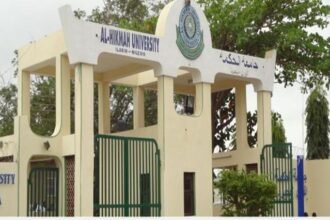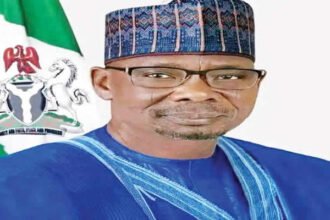The Vice Chancellor of the University of Calabar, Professor Florence Obi, has appealed for calm and understanding as the university navigates the complex challenge surrounding the delayed induction of its dentistry graduates. The crisis, which stems from alleged over-admission into the Dentistry and Dental Surgery programme, has drawn national attention, stirred social media unrest, and left dozens of affected students in distress.
According to a report made by Educa.ng, the Medical and Dental Council of Nigeria (MDCN) recently withheld induction for 31 final-year dental graduates who had successfully completed their exams, citing violations of approved admission quotas.
In a press conference held at the University Council Chamber, Professor Obi sought to provide clarity and allay public fears. She explained that while the university currently holds full accreditation for clinical dentistry, a longstanding pattern of non-compliance with admission limits issued by the MDCN had culminated in the current situation.
A Legacy Challenge, Not a New Failure
“This is a structural issue we inherited,” Professor Obi stated. “The MDCN had approved an annual quota of 10 students for our dentistry programme since 2016, but the university unfortunately admitted more students than permitted. We’re now facing the consequences and working to rectify them.”
The graduating class in question reportedly included 60 students—six times the permitted intake—of whom 31 had met all academic and clinical requirements. However, the MDCN declined to induct them due to what it described as persistent breach of regulations.
Despite this, three previous cohorts of students had been successfully inducted under the same structural challenges, a gesture Professor Obi credited to the MDCN’s goodwill.
“We’re grateful to the Council for their past cooperation,” she said. “But this time, the excess was simply too significant to ignore.”
Two-Pronged Proposal to Resolve the Crisis
As Educa.ng gathered, the MDCN has proposed a two-pronged solution to the crisis:
-
Immediate transfer of students currently in their 4th to 6th year to other accredited dental schools across the country.
-
A freeze on future inductions until the university demonstrates improved compliance with staffing and infrastructural requirements.
Professor Obi stressed that the university’s programme remains fully accredited and legally valid, but acknowledged that it has been unable to expand its quota due to staff shortages and other infrastructural gaps.
“Our programme is not illegal. We are accredited until 2027. The problem is that we lack the manpower to justify a quota increase. The MDCN cannot reassess us until we upgrade our human and physical resources,” she clarified.
IPPIS Restrictions Blocking Recruitment
At the heart of the staffing bottleneck, she explained, lies the Integrated Payroll and Personnel Information System (IPPIS)—a centralised federal government system that restricts autonomous staff recruitment by tertiary institutions.
“Since I assumed office, we’ve made appeals to the National Universities Commission, the Ministry of Education, and the Head of Service for waivers. We now have approval to recruit 218 academic staff and are only waiting for the final go-ahead from the Budget Office,” Professor Obi revealed.
Presidential Intervention: A Ray of Hope
Offering a glimmer of hope, the Vice Chancellor announced that the university recently received a special presidential intervention fund of ₦4.75 billion designated for critical health-related programmes, including dentistry, nursing, pharmacy, and medicine.
The fund, as Educa.ng confirmed, is earmarked for substantial infrastructure upgrades. Among the requests already submitted to the Ministry of Education is a proposal for 16 additional dental chairs, which would raise the university’s total to 40—bringing it closer to MDCN standards for clinical training capacity.
“This intervention is a turning point,” Professor Obi said. “We are determined to meet the requirements that will not only lift the induction ban but allow us to increase our student quota legitimately.”
Emotional Toll on Students and Families
Acknowledging the mental and emotional strain on students and their families, Professor Obi made an impassioned appeal for understanding and patience.
“We know it’s heartbreaking. Some students are battling depression, and parents are anxious. But we are doing everything possible, within legal and institutional boundaries, to find a permanent solution,” she said.
She assured the affected students and their families that any proposed transfer to other universities will be handled transparently, fairly, and with student welfare in mind.
“We will not abandon our students. We will work with MDCN and other institutions to make sure this is done right,” she added.
A Path Toward Institutional Renewal
The crisis, though painful, has served as a wake-up call for systemic reform at the University of Calabar. As part of its long-term plan, the university is set to review all its quota-bound programmes, ensuring strict compliance with regulatory guidelines going forward.
“We’re learning from this and reforming internally,” Professor Obi said. “Going forward, no programme will be allowed to admit more than what is approved. We’re also reviewing our admission process to ensure tighter controls.”
Educa.ng notes that other universities across Nigeria may be grappling with similar quota violations in health-related fields. The MDCN’s decision regarding UNICAL could therefore set a precedent for broader enforcement of admission compliance nationwide.
Education with Integrity
Professor Obi concluded by reaffirming her commitment to academic integrity, student welfare, and institutional excellence.
“We are not folding our arms. We are engaging the right channels, pushing for reforms, and doing what is necessary to restore dignity and hope to our dentistry programme. We remain a university committed to doing things right.”
As the story unfolds, the University of Calabar finds itself at a crucial crossroads—one that may redefine its relationship with regulatory agencies, its accountability to students, and its pursuit of academic excellence in the 21st century.




